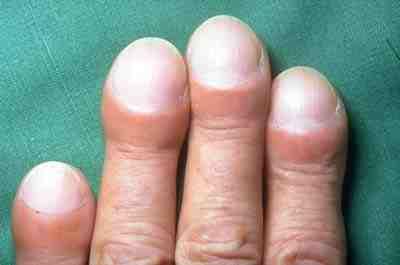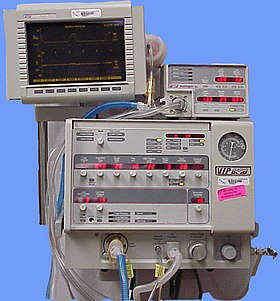Respiratory Failure
Respiratory failure is a medical condition where the respiratory system fails to adequately exchange gases, leading to insufficient arterial oxygen, carbon dioxide, or both. This condition can result in hypoxaemia (low blood oxygen) and/or hypercapnia (high blood carbon dioxide).
Respiratory failure is classified into four types based on gas exchange abnormalities and can present as either acute or chronic. The condition often leads to altered states of consciousness due to brain ischaemia.
Causes
Respiratory failure can be caused by a variety of conditions that either obstruct airflow, impair lung blood supply, or limit gas exchange. Key conditions include:
- Physical obstructions like foreign bodies or changes in chest anatomy.
- Thromboembolic conditions and right heart failure.
- Lung diseases such as infections, interstitial lung disease, and pulmonary oedema.

Types
Respiratory failure is categorised into four types:

Type 1
Characterised by hypoxaemia (PaO2 < 60 mmHg) with normal or low PaCO2. Causes include low ambient oxygen, ventilation-perfusion mismatch, alveolar hypoventilation, diffusion problems, and right-to-left shunts.
Type 2
Characterised by hypoxaemia with hypercapnia (PaCO2 > 50 mmHg). Causes include increased airway resistance, reduced breathing effort, decreased lung area for gas exchange, and neuromuscular problems.
Type 3
A subset of Type 1, also known as peri-operative respiratory failure. It is commonly associated with lung atelectasis post-surgery due to decreased functional residual capacity.
Type 4
Occurs when metabolic oxygen demands exceed cardiopulmonary supply, often seen in shock conditions like cardiogenic shock or hypovolaemic shock.
Signs and Symptoms
Patients with respiratory failure often present with:
- Shortness of breath
- Cyanosis
- Tachycardia
- Tachypnea
- Arrhythmias
- Headaches
- Hypertension
Complications can include seizures, fainting, panic attacks, infections, and coma. Physical exam findings may show accessory muscle use, altered mental status, clubbing of fingers, peripheral cyanosis, tachypnea, and pale conjunctiva.

Diagnosis
Arterial blood gas (ABG) assessment is the gold standard for diagnosing respiratory failure. It measures blood oxygen levels (PaO2) and carbon dioxide levels (PaCO2). Supporting diagnostic methods include capnometry and pulse oximetry. Imaging techniques like ultrasonography and radiography may assist in determining the underlying cause.

Treatment
Treatment focuses on addressing the underlying cause and may involve medications such as bronchodilators, antibiotics, glucocorticoids, and diuretics. Respiratory therapy or physiotherapy can be beneficial. For opioid overdoses, naloxone is administered, while benzodiazepine overdose may not benefit from flumazenil.
Type 1 respiratory failure often requires oxygen therapy or more advanced interventions like heated humidified high-flow therapy or mechanical ventilation. Type 2 respiratory failure typically necessitates non-invasive ventilation (NIV) or mechanical ventilation if NIV is ineffective.

Prognosis
The prognosis of respiratory failure varies widely depending on its aetiology and the availability of appropriate treatment. Acute respiratory failure has a high mortality rate, with one in three hospitalised cases being fatal.
Self-assessment MCQs (single best answer)
What is the primary characteristic of Type 1 respiratory failure?
Which of the following is NOT a common cause of respiratory failure?
Which diagnostic tool is considered the gold standard for diagnosing respiratory failure?
What is a common sign of respiratory failure observable in the fingers?
What type of respiratory failure is associated with lung atelectasis post-surgery?
Which of the following conditions can lead to Type 4 respiratory failure?
What is the initial treatment for opioid overdose that leads to respiratory failure?
Which symptom is NOT typically associated with respiratory failure?
Which intervention is often required for managing Type 2 respiratory failure?
Which of the following is a potential complication of respiratory failure?
Dentaljuce
Dentaljuce provides Enhanced Continuing Professional Development (CPD) with GDC-approved Certificates for dental professionals worldwide.
Founded in 2009 by the award-winning Masters team from the School of Dentistry at the University of Birmingham, Dentaljuce has established itself as the leading platform for online CPD.
With over 100 high-quality online courses available for a single annual membership fee, Dentaljuce offers comprehensive e-learning designed for busy dental professionals.
The courses cover a complete range of topics, from clinical skills to patient communication, and are suitable for dentists, nurses, hygienists, therapists, students, and practice managers.
Dentaljuce features Dr. Aiden, a dentally trained AI-powered personal tutor available 24/7 to assist with queries and provide guidance through complex topics, enhancing the learning experience.
Check out our range of courses, or sign up now!


